
Life sciences writer Susan Milius has been writing about botany, zoology and ecology for Science News since the last millennium. She worked at diverse publications before breaking into science writing and editing. After stints on the staffs of The Scientist, Science, International Wildlife and United Press International, she joined Science News. Three of Susan's articles have been selected to appear in editions of The Best American Science Writing.

Trustworthy journalism comes at a price.
Scientists and journalists share a core belief in questioning, observing and verifying to reach the truth. Science News reports on crucial research and discovery across science disciplines. We need your financial support to make it happen – every contribution makes a difference.
All Stories by Susan Milius
-
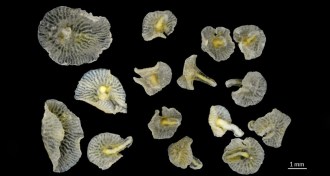 Animals
AnimalsMystery mushroomlike sea creatures get names
Specimens of a mushroomlike animal from the sea now have a scientific name, but researchers aren’t sure what kind of animal they are.
-
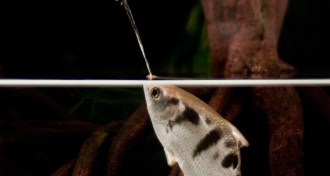 Animals
AnimalsArcherfish mouth is the secret of precision spit
Trained fish shoot down two hypotheses for their fine spit control but reveal fancy mouth work.
-
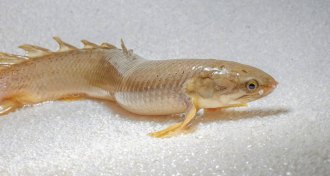 Animals
AnimalsA fish reared out of water walks better
The normally aquatic fish Senegal bichir raised on land suggests how ancient species might have transitioned into terrestrial ones.
-
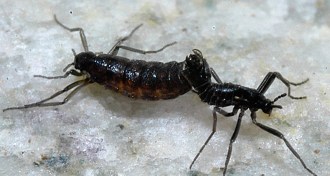 Animals
AnimalsAntarctic midge sports tiniest insect genome
Antarctic midge‘s genetic minimalism achieved by skipping a lot of repetitive stretches.
-
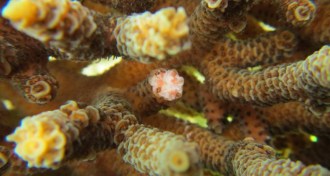 Animals
AnimalsCorals, fish know bad reefs by their whiff
Compounds drifting off certain overgrown seaweeds discourage young corals and fish from settling in failing reefs.
-
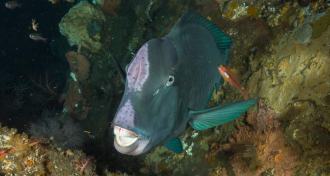 Animals
AnimalsBumphead parrot fish declare their arrival with a crunch
Months of swimming with the coral-biter bumpheads exposes the animal’s extreme digestion and also a conservation dilemma.
-
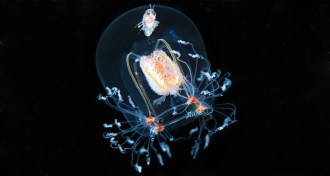 Animals
AnimalsSeeing past the jellyfish sting
Jellies don’t get nearly as much love as their cousins, the corals, but they deserve credit for providing homes to some creatures, dinner to others and more. They’re an integral part of the oceans.
-
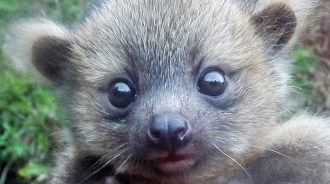 Animals
AnimalsOlinguito’s bio built by crowd-sourcing
Crowd-sourcing fleshes out the bio of little-known raccoon relative, the olinguito.
-
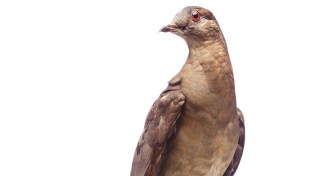 Animals
AnimalsHere’s your chance to see the last passenger pigeon
On display for the 100th anniversary of her species’ extinction, the final passenger pigeon specimen looks pretty good.
-
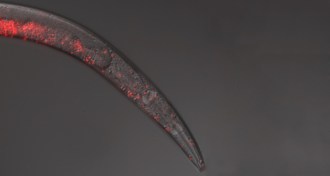
-
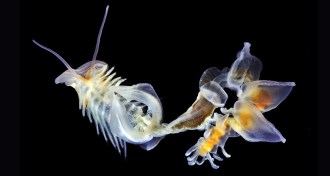 Animals
AnimalsParchment worms are best pinched in the dark
Meek tube-dwelling worms have strange glowing mucus and build papery tubes.
-
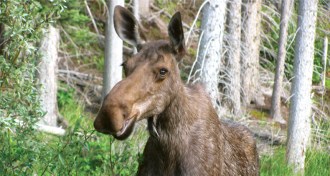 Ecosystems
EcosystemsMoose drool can undermine grass defenses
Saliva from moose and reindeer sabotages plants’ chemical weaponry.